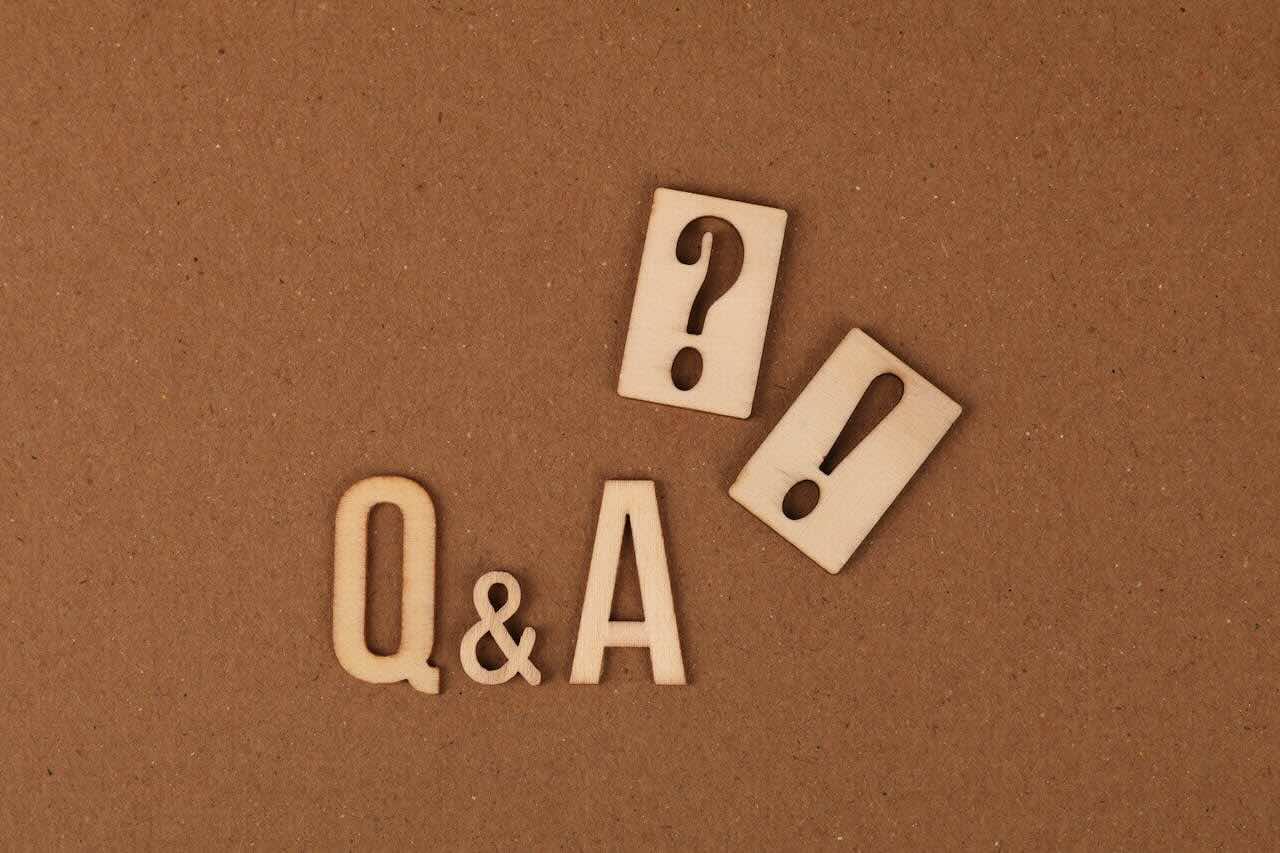As an avid reader and lifelong book nerd, I’ve lost count of how many times I’ve found myself turning the final page of a novel only to realize…I didn’t actually absorb most of what I just spent hours consuming. My mind was there, diligently following the narrative’s twists and turns. But somewhere along the journey, my comprehension skills lapsed.
That gnawing sensation of missed connections and lost depth is all too familiar for many of us self-professed bibliophiles. We commit to devouring books with a ravenous pace, but then struggle to actually retain key insights, potent thematic threads, and enriching details once the reading experience has concluded.
Luckily, through years of making the same comprehension mistakes over and over (and over) again across countless books, I’ve picked up an arsenal of effective reading strategies geared towards combating those frustrating lapses in retention and intellectual engagement. Simple adjustments to our reading habits, note-taking practices, and general mindsets while flipping pages that exponentially amplify our ability to really absorb the treasures contained within those covers.
So for all my fellow book-loving brethren who’ve found themselves glazing over paragraphs only to regret those comprehension potholes later, here are 10 tactical tips and techniques to start reading more deliberately and squeezing maximum insight from every book you embark upon:
Always Read with a Literal Notepad/App by Your Side

One of the most transformative habits I’ve adopted over my decades lost in the pages of great books has been fastidiously taking notes as I read—directly underlining or highlighting impactful passages—and seamlessly jotting down reactions, reflections, and unanswered questions in the margins or a dedicated notebook.
The mere physical act of recording your literary experience in real-time forces you to stay comprehensively engaged with the text, never letting your mind lapse into the dreaded autopilot skimming mode. I find I’m exponentially more likely to absorb thematic threads, poetic metaphors, symbolic details, and other crucial elements when there’s an intentional note-taking practice keeping me tethered to the plot’s essence as it unfurls.
Take Notes to Stay Engaged: The Power of Real-Time Annotations
An easy way to integrate this strategy without pulling focus from your reading is to always keep a pad of sticky notes and a pen nearby. At the start of each chapter or section break, just scribble some basic bullet points summarizing major plot advancements or character beats fresh in your mind. Then start annotating from there as new ideas, connections, or curiosities arise.
Or if you prefer digital solutions, plenty of e-reader apps like Apple Books or Kindle allow you to highlight/underline text while also maintaining running marginalia notes within each book file. Much cleaner and more searchable access to your literary insights later!
Read in a Distraction-Free Environment Conducive to Focus
 While we all aspire to have lazer-like concentration skills enabling us to immerse in dense, rewarding literature regardless of surrounding chaos, the truth is our comprehension is often hopelessly tainted by environmental stimuli triggering our instincts to tune out and lose focus.
While we all aspire to have lazer-like concentration skills enabling us to immerse in dense, rewarding literature regardless of surrounding chaos, the truth is our comprehension is often hopelessly tainted by environmental stimuli triggering our instincts to tune out and lose focus.
That’s why it’s so important to ruthlessly assess your reading environment: whether your chosen reading locale is actually optimized for deep intellectual absorption or undermined by auditory disturbances, visual clutter, and other stimuli that constantly divert your attention.
Create a Focused Reading Environment: Minimizing Distractions
In my personal experience, I’ve found that while certain charming coffee shops or bustling public parks may seem like perfect literary getaways on paper, the ceaseless foot traffic and ambient commotion effectively kneecaps any efforts to stay dialed in over an extended period. Nothing worse than finally settling into a momentum groove with a book only to be constantly snapped out of hyperfocus every 5 minutes.
For best comprehension retention, I try to self-administer reading sessions exclusively under solitary conditions: noise-cancelling headphones on in a locked bedroom, out on a silent forest trail, or within any controlled environment where you can manage external variables. Distraction suppression should be a top priority if you’re tackling a complex, heady novel requiring consummate comprehension muscle.
Apply the Age-Old Primer Trick – and Master Context

One extremely effective reading strategy for extracting maximum comprehension from literary works is to get in the habit of thoroughly “priming” yourself with contextual background information before cracking the covers.
Take time to research the work’s literary period, sociopolitical climate, cultural context, and authorial insights. Get a lay of the conceptual land, so to speak. That way, when you finally start reading the actual book, you bring an enriching frame of reference and pertinent knowledge base to confidently navigate the many metaphorical “inside references” peppered throughout.
Primer Before You Dive In: Mastering Contextual Understanding
Think of reading Thomas Pynchon’s Gravity’s Rainbow without any fluency in The Contemporaries, inheritors of literary postmodernism, or the Pynchonian style. And forget about grasping the story’s layered sociocultural satire if you didn’t first brush up on your military-industrial knowledge of WWII-era stratocracies. The book assumes a certain degree of intellectual financial literacy from readers before its kaleidoscopic genius truly resonates.
So do yourself a favor and invest the requisite due diligence in inoculating yourself with contextual primers tailored to the work. Your immersion and comprehension levels will skyrocket as a result.
Capitalize on the Poly-Reading Renaissance and Cross-Format

In today’s multimedia era, there’s no rule stating all book consumption and comprehension enhancement have to occur through the written word alone. Smart readers today are increasingly “poly-reading,” augmenting their literature experiences by triangulating podacasts, filmed adaptations, interviews, and ancillary tie-in content to better illuminate the original text.
For example, when tackling long, dense 19th-century classics penned by authors like Dostoevsky or Tolstoy, comprehension can be better facilitated by listening to podcasts like Audible’s The Greatest Novels of Russian Literature series as a framing primer before getting lost in the granular text itself. The Audible series provides foundational historical and cultural analysis to better position readers for insights and comprehension inroads.
Embrace Poly-Reading: Leveraging Multimedia for Better Insight
Or leverage the recent cinematic renaissance around beloved novels to whet your appetite and bootstrap comprehension through visual translations. Devouring the Hulu miniseries interpretation of Celeste Ng’s Little Fires Everywhere could stimulate a more holistic multimedia grasp of the original novel’s nuanced dynamics and racialized class commentaries.
This multidimensional approach provides diverse sensory access points for comprehending the core material before, during, and after the novel itself. We’re truly living in the era of poly-reading, so get meta and leverage the format convergence to your comprehension advantage!
Identify Literary Blindspots and Tackle Them Head-On

In my experience as an anglophonic reader primarily steeped in Western literary traditions, I’ve had to constantly interrogate where my textual blindspots are and affirmatively seek out titles that challenge those narrow perspectives. You can’t comprehend universalities without first acknowledging your parochial blind spots.
For example, over the past few years I’ve made it a point to devour influential non-Western epics like One Hundred Years of Solitude, The Brothers Karamazov, and The Tibetan Book of the Dead—not just for their revered substance on its own considerable literary merits, but because of their sense-expanding introductions to different cultural frameworks and philosophical worldviews I don’t regularly engage with.
Confront Your Literary Blindspots: Expanding Your Reading Horizons
To fully comprehend these works, I had to first unpack the coded references and conceptual decoupling from the literary status quo I take for granted. Reading strategies and pre-work had to orient me towards new concepts of imagery, spiritual resonance, and continental erudition native to those cultures. And that productive struggle to exit my Western mind prison was itself an empowering comprehension exercise.
Ask Thought-Provoking Questions Before, During, and After Your Read

Among the most underrated yet undeniably effective reading strategies is to cultivate a habit of constantly interrogating the texts you absorb with thoughtful, critical inquiries throughout your consumption journey. This practice alone can turn a mindless page-turning slog into an intellectually hypercharged experience dense with comprehension upgrades.
Before you even start reading a book, prime your brain for enhanced contextual comprehension by researching background information and posing guiding questions to anchor your curiosity as you progress. Why did this author write this particular story? How might their own life experiences, perspectives, and biases feed into the themes and narratives?
Ask Questions Throughout: Engaging with the Text Critically
During the actual reading process, train yourself to frequently stop and challenge the text with open-ended questions pondering the choices, mysteries, and layered meanings. What motivated that character’s actions – and what would you have done in their shoes? Are there potential hidden subversive commentaries beneath the surface? How might different cultural lenses re-interpret the symbolism here?
Finally, after completing the final chapter, take time to synthesize all your unresolved inquiries into a robust personal debriefing session. Collect lingering areas of ambiguity and plot threads meriting deeper analysis before allowing yourself to move onto something new. The more thorough questioning, the stronger your comprehension foundation.
Leverage the Knowledge Commons: Join a Book Club!

Reading for insight and comprehension doesn’t need to be an isolated endeavor. For countless bibliophiles across generations, joining an actual community-oriented book club has proven to be among the most reliable methods for driving meaningful discussions that fortify comprehension surrounding the chosen literature.
A great book club setting, whether virtual or in-person, allows passionate readers to harmonize their unique interpretations and lived experiences into a cooperative exegesis of the text’s substance and significance. These sessions transform books from mere entertainment into comprehension-driving communal learning experiences where pluralistic scholarly discourse fleshes out angles and layers you never could have uncovered alone.
Join a Book Club: The Benefits of Communal Learning
Even beyond the formal meetings, most book clubs offer supplementary channels for continuing the comprehension journey. Apps like Discord, Facebook Groups, Reddit communities, email lists—all these facilitate a democratized “always on” forum for crowd-sourced investigation into the book’s densest symbolic treads, subtextual meta-narratives, and thematic mysteries.
And of course, in today’s digitally porous world, many authors themselves often interface directly with book clubs as special guests in Q&A sessions or live annotations, providing fans an unprecedented line into comprehending their creative intent and processes.
So if you’re committed to diving head-first into greater literary insight and understanding with each new book, definitely consider joining or starting up a dedicated book club tailored to your tastes. Peer-driven comprehension is an unparalleled accelerant for your reading game.
Don’t Rush – Let the Rhythms Find You

Though counterintuitive if you’re a voracious speed-reader by disposition, one of the most powerful reading comprehension strategies to embrace is…allowing yourself to ease off the gas pedal and exercise radical patience with the text.
Too often, we’re hardwired to treat books like products to be expediently consumed and recycled into the next title. This compulsive urge to rush ahead and “get through it” at all costs can neuter any absorption of subtle intricacies and nuanced meanings along the way.
Slow Down: Finding the Right Reading Rhythm
There’s real magic to be unlocked by practicing mindful patience when immersed in a great book. Slowing down your pace and allowing the narrative rhythms to find their own organic tempo instills greater sensitivity to understated character beats, metaphorical language, and delicate atmospheric world-building that tends to dissipate if you’re sprinting towards the finish line.
Obviously, this languid comprehension strategy requires the luxury of open time, so it may prove challenging for reading certain genres or purposes, like cramming for tests. But whenever possible, treat your books like meditative experiences suited to unfold gracefully at their most enlightening wavelengths.
Embrace Pop Culture Relevance Through Novel Viewpoints

For better or worse, popular culture continues shaping the modern collective consciousness and discourse on an unprecedented global scale. And you’d be wise to take advantage of that pan-media relevance by triangulating the classics you read through fresh lenses reflecting contemporary entertainment and social trends.
Not only does this reading strategy make the dense subject matter feel less antiquated and more accessible for 21st century consumption, but you also gain pithy comprehension shortcuts through novel academic frameworks and tropes illuminating resonant thematic parallels in ways you may have otherwise missed.
Utilize Pop Culture: New Perspectives on Classic Themes
For instance, unpacking the moral ambiguity behind Michael Corleone’s descent into violence and criminality in Mario Puzo’s The Godfather takes on fascinating new layers when filtered through the alternate viewpoint of anti-hero dramas like Breaking Bad or Ozark, where audiences are primed to root for flawed protagonists making one ethically murky choice after another.
Or try leveraging the recent wave of award-winning horror filmmaking through prisms like Hereditary and The Babadook to wring staggering new comprehension around the psychological underpinnings in Shirley Jackson’s iconic The Haunting of Hill House and its scathing indictments against repressive 20th-century gender norms.
Bottom line: deprive yourself of the intellectual shortcut that popular entertainment provides as a vehicle for empathetic character study and symbolic excavation, and you risk missing connecting tissues central to holistic textual comprehension in our modern age.
Post-Reading Debriefs Solidify Lessons Learned
 After all is read and done, one of the most enlightening comprehension strategies is completing a thorough post-reading debrief — a purposeful introspective exercise consolidating your consumed insights, reactions, and outstanding questions into a preserved repository you can reference for years to come.
After all is read and done, one of the most enlightening comprehension strategies is completing a thorough post-reading debrief — a purposeful introspective exercise consolidating your consumed insights, reactions, and outstanding questions into a preserved repository you can reference for years to come.
How often have you come away from finishing an eye-opening book harboring profound aha moments or tearful epiphanies about the human condition, only for those hard-won revelations to slowly dissipate as time passes? By codifying those flashes of understanding in detailed debrief notes, you’re essentially inscribing those stories’ lessons into your intellectual memory banks.
Post-Reading Debriefs: Cementing Your Knowledge
Furthermore, the very act of performing this debrief illuminates angles of symbolic meaning and technical narrative craft you likely glossed over when passively consuming the material without these decompressive processing muscles engaged.
Your final narrative comprehension becomes that much fuller and enriched by taking the time to unpack key themes, character studies, inciting incidents, elemental metaphors, and resonating emotional arcs of development while they’re still piping fresh in your mind.
Never skip this momentous final step! Whether captured through long-form essays and marginalia or simply bullet-pointed in a cherished literary diary, your debriefed comprehension insights will blossom into their own vibrant forms of sustenance for your life and artistic journey going forward.
With sincere application of these 10 time-tested reading strategies and mindset reorientations, your future adventures through great books and literary rabbit holes are primed for exponentially heightened understanding and absorption. No more gliding through fiction or non-fiction on autopilot!
Get deliberate about your reading practices. Stay curious and present to every allusion, metaphor, and planted authorial seedling of thematic revelation. Actively annotate, interrogate, and synthesize the texts into an ongoing comprehension quest tuned to your unique life experience.
Put simply: become an active co-creator, not just skimming words but co-inhabiting the narrative realities authors dream into existence between their covers. And very soon, you too will join those rarefied ranks of literary savants capable of effortlessly parsing truth, beauty, and profound wisdom from any bound collection of ink and imagination gracing your journey.




